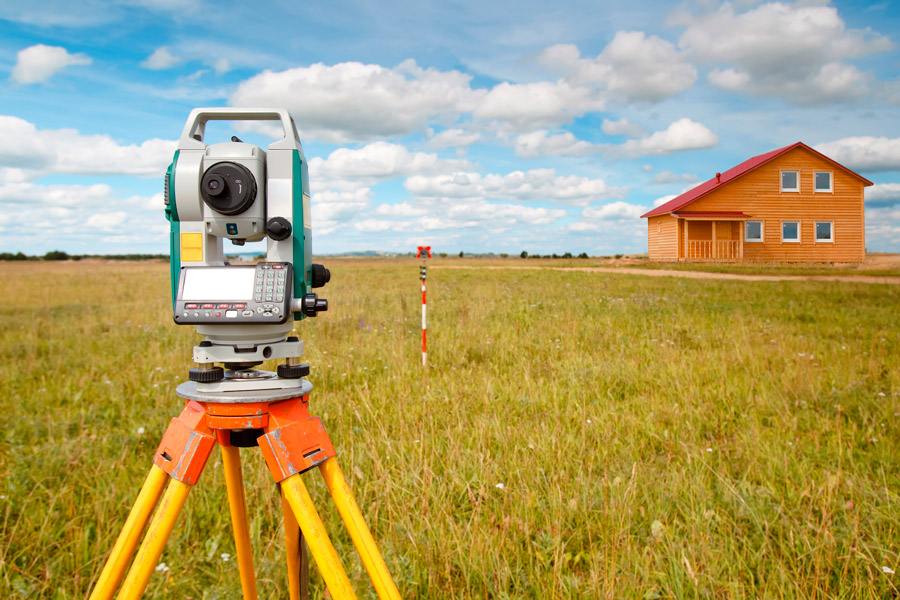Land surveying and land buying go hand-in-hand. A well-defined land survey provides crucial zoning information for buyers, including the land’s boundaries, contours, and elevations. These details and calculations are essential when planning for future construction, land subdivisions, and other development projects.
Six Significant Factors to Consider Before Ordering a Land Survey

Double-Check A State’s Legal Requirements
One of the most important considerations during land surveying is legal requirements. Every state has different laws governing land surveying, so it’s vital that land surveyors fully understand and comply with their particular rules and fill out any significant documents. A land surveyor might need permits or a local authority’s permission before conducting a survey. Anyone who doesn’t meet these legal requirements may face severe penalties, including legal disputes, fines, or even property loss.
The only way to avoid unnecessary and costly legal hassles is to double-check local policies and verify land surveyors have accreditations to legally start mapping territory. If land buyers have any doubt about their land policies, they should contact a lawyer familiar with zoning laws in their state for professional guidance.
Define The Purpose of the Survey
Identifying the purpose of a survey from the start helps surveyors figure out how much effort and detail they need to put into their report. For instance, a simple boundary survey may be sufficient if you only need to know the property’s total distance measurements and limits. However, anyone planning on developing or cultivating their land needs a more detailed analysis. As an example, land buyers who want to build real estate on their land need a topographic survey to identify any elevation changes, slopes, or other relevant features. Be sure surveyors know the full scope and goals for land development beforehand so they can use the proper tests and tools to gather the necessary data.
Evaluate a Surveyor’s Experience
Although a land surveyor may have the “right” credentials to start measuring land parcels, that doesn’t mean they can’t make mistakes. To avoid “novice errors” creeping into a land survey, work with someone with years “in the field” (both literally and figuratively). Take the time to screen professional surveyors with a solid track record for delivering accurate and reliable results. Also, consider contacting past clients to get an unbiased opinion on a land surveyor team’s professionalism. Working with an experienced and well-reviewed land surveyor increases the odds of receiving the most accurate analysis possible.
Ensure High-Quality Survey Equipment

No matter how skilled a surveyor team is, they won’t get the best measurements using outdated equipment. High-precision tools such as total station tripods, ground-penetrating radars, and GPS receivers are commonly used in land surveying to obtain the most accurate measurements. Although these devices are often expensive, they are worth the extra price to obtain the most precise readings. Ask surveyors what types of instruments they use to get their results and try to find a team with the latest hi-tech equipment.
Consider Adjacent Property Owners
Unless neighbors are interested in surveying technology, they probably won’t be “pleasantly surprised” to see land surveyors on their property. Even if surveyors don’t intend to include adjacent property owners in their screening, neighbors may inadvertently become a part of the test. For instance, surveyors may need to step outside a land parcel’s official boundaries into someone else’s property for a precise measurement. If you expect this test to affect anyone living on neighboring land parcels, talk with them beforehand and obtain written legal consent before conducting the land survey.
Watch Out For Environmental Considerations
Lastly, land surveyors must factor a territory’s flora and fauna into their database. Environmental factors and natural features such as rivers, lakes, or ponds are crucial details from both a development and legal perspective. For instance, there may be environmental laws or restrictions in an area regarding endangered species or wetlands, which land buyers might need to consider before starting construction. Also, remember to include human-made features such as roads, buildings, or bridges in this part of a land abstract for a comprehensive overview of the terrain.
Take Extra Care To Make Land Surveying A Success
Although taking the proper steps to get a professional land survey is time-consuming, there’s no way to “get around” this essential process. Land buyers have to ensure their land surveys are accurate. Land surveys help people identify what projects are possible on their new property and the most actionable strategies they can take to make their vision a reality. By considering these factors, land buyers can ensure their land survey is conducted accurately and reliably, helping to prevent disputes and legal problems in the future.


